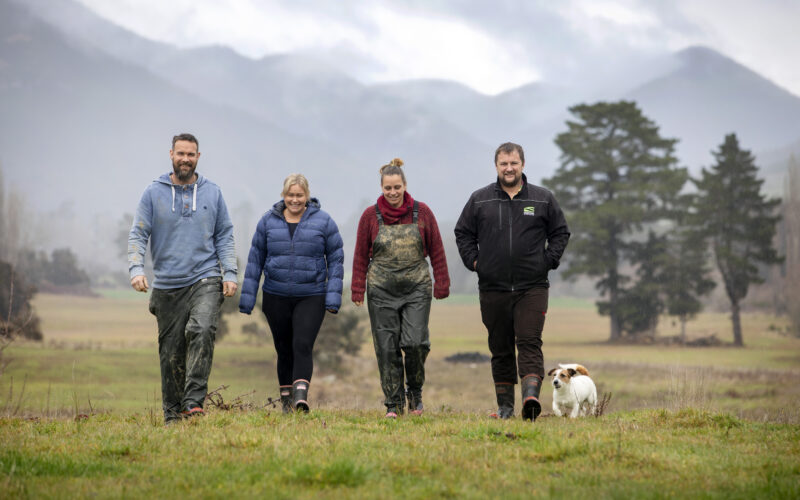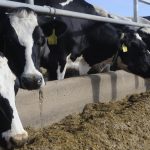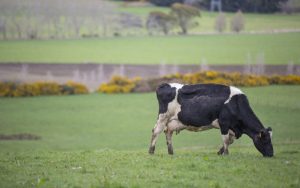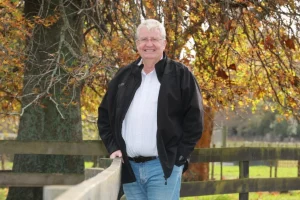
‘When we lose these guys there’s nobody here that’s wanting to do that job,’ says Feds leader.
Dairy farmer Stephen Todd says changes to the Accredited Employer Work Visa are likely to have a devastating impact on the industry.
The fourth-generation farmer said he’ll lose valuable members of his team if recent alterations to the system aren’t revoked.
The changes include most ANZSCO Level 4 or 5 occupations receiving shorter visas and having a reduced maximum length of stay in New Zealand, a requirement for a minimum standard of English, additional advertising and hiring requirements, and a new minimal skill and experience threshold.
“It will destroy productivity of the industry,” said Todd, who is president of Nelson Provincial Federated Farmers.
“The changes don’t make any sense from a farming point of view when we’re trying to be productive, contribute to the country’s economy and make the most out of our best people.
“The changes will mean having to send good people away and bringing in others we need to retrain. If we send these people away, most of them will go to another country like Canada or Australia, taking the skills we’ve given them with them.”

Todd and his wife Kim own three neighbouring farms near Murchison, with a total of 1900 cows. He said what makes it even more frustrating is that the changes announced in April came out of the blue.
He currently has two employees under the scheme (whom he asked not to identify beyond their first names), both of whom have contributed significantly to the business and brought their families to Aotearoa.
Jopet came to work on the farm from the Philippines 18 months ago and is a dairy farm assistant, and Andy is a farm manager who moved from the United Kingdom with his wife and family nearly a year ago to work on the farm.
“Both were granted a three-year visa when they came and there was an option after that we could have it extended to five years, which in hindsight I wish we’d done because as I understand it they’re no longer able to access this,” Todd said.
“At this stage, the way it’s written, there’s a maximum continuous stay period of three years, so at the end of that three years they’d have to essentially leave New Zealand and there’s a 12-month stand down period.
“That’s pretty brutal.”

An associate at Pitt & Moore Lawyers, Elly Fleming, has been inundated with enquiries from farmers confused and concerned by the changes.
She has clients across Aotearoa who employ workers under the system from countries including the Philippines, India, South Africa and parts of South America, many of whom she said hadn’t understood the new changes would directly impact them and their migrant employees.
The changes, in effect from April 7, have resulted in negative consequences for many employers, she said, especially those of migrants in occupations at ANZSCO Level 4 or 5 such as dairy farm assistants, general hands and farm workers.
One aspect of great concern to many enquiring has been the new minimum skills and experience requirements.
“Migrants have to show they’ve got at least three years of relevant work experience or relevant qualification of NZQF Level 4 or higher,” Fleming said. “In a lot of the jobs, migrants won’t have a qualification so they need to show three years’ minimum work experience but many won’t have that either.
“Demonstrating experience means actually having some work references, tax records, and independent evidence. And that needs to be three full years, not three seasons.”
The English language requirements are another great concern to clients, she said. Farmers may have spent years building up skills in their workforce only to find that because their staff can’t pass the English language test they have to return to their home country.
“A lot of employers are concerned their migrant workers may not even be willing to sit the English language test because it’s too overwhelming for them,” said Fleming.
“I’ve had clients who’re very concerned because this test involves reading, writing and listening, as well as speaking. Some migrants can get by with their oral communication, but it’s the reading and writing that can weigh them down resulting in an overall low score.

“These extra hurdles or barriers will make New Zealand less attractive and mean migrants have to spend more money before they can apply for their visas. Financially is that going to be viable for them or will they ask the employers to cover that extra cost?”
Fleming advises clients to expect delays in the application process too.
“Employers really need to plan ahead, do a review of their current and future workforce needs, and get professional advice if they do want to hire and retain migrants, so that they have the right systems in place and ensure the process is as smooth as possible. Minor mistakes can have major consequences.
“There’s a lot of outrage over these changes. It’s certainly creating more stress and pressure and many employers will need to look at whether it’s viable for them to continue operating.”
Todd advises ministers to look at the problem it’s created and reverse the changes to avoid damage to the country’s economy.
“The changes they’ve brought in are pretty brutal and it makes us unproductive as a sector because we can’t be productive when we’re constantly losing good people and having to train new people.
“When we lose these guys there’s nobody here that’s wanting to do that job. We’ve got great Kiwis on our crew of 10 people, but there’s not a stack of them around the corner waiting to fill every role.”
The result, he said, if the issue is not addressed, is that farmers face increasing workloads and stress levels.
“Unfortunately that could lead to some pretty tough times with people in mental states because they’re overworked. That’s not an acceptable situation.”
You can now read the most important #news on #eDairyNews #Whatsapp channels!!!
🇺🇸 eDairy News INGLÊS: https://whatsapp.com/channel/0029VaKsjzGDTkJyIN6hcP1K























